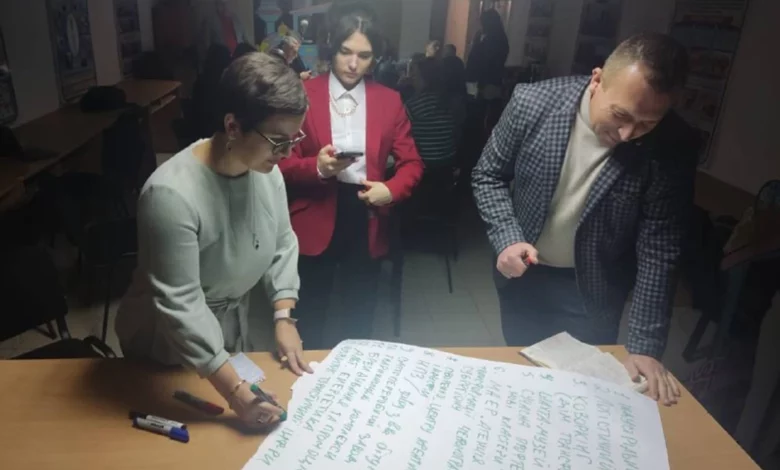
Important points of economic growth for the community in the future may be the creation of an industrial park and a logistics hub, the implementation of investment projects, the renewal of vocational education, the creation of a Center for creative industries, a mine-museum, and the development of tourist infrastructure.
In Chervonohrad, a meeting of the Working Group on the development of the Strategy/Action Plan for the just transformation of the Chervonohrad urban territorial community was held within the framework of the Project “Supporting Structural Changes in the Coal Regions of Ukraine”.
The project is implemented in Ukraine and in particular in Chervonograd as a pilot region by Deutsche Gesellschaft für Internationale Zusammenarbeit (GIZ) GmbH on behalf of the German Federal Ministry of Economy and Climate Protection (BMWK).
The main directions of the Project’s implementation relate to the fair transformation of coal regions, in particular in the Lviv Region.
As the department of economic policy of the Lviv regional government told, the main focus of the meeting was on creating new opportunities for residents of coal communities and workers of coal enterprises.
In particular, they worked on the roadmap for the development of the Strategy/Action Plan for the just transformation of the Chervonograd Territorial Community, agreed on the schedule of meetings of the Working Group and the plan of tasks to be completed.
They also discussed a number of strategic and program documents of the community, the results of the socio-economic analysis of the development of the Chervonograd community, and identified key problems.
At the meeting, the content of the future Strategy was formed: key priorities/areas of fair transformation and development of the Chervonograd community, operational goals and tasks were determined.
“Important points of economic growth, among others, will be the creation of an industrial park and a logistics hub, the implementation of investment projects for the creation of a waste processing plant and the development of alternative energy, the renewal of professional and technical education and the creation of a Center for creative industries, a mine-museum and tourist infrastructure,” the department added. .
Institutional support for the process of just transformation of the Chervonograd community will ensure the creation of the Chervonograd Development Agency.
“In the conditions of Russia’s armed aggression against Ukraine, the issue of the country’s energy security has become very acute. Lviv Oblast is ready for the challenge that has come before it in the context of the green transition and the need to reform the coal sector. For us, the experience and support of Germany and the European Union is extremely important for the successful closure of mines and the transformation of coal regions, because there are mines and a thermal power plant operating on coal in the Chervonograd district,” the Department of Economic Policy noted.
The Working Group was attended by representatives and experts of the GIZ company, the Department of Economic Policy of the Local Government Administration, managers of the Chervonograd Territorial Community, representatives of state-owned coal enterprises and public organizations.
For reference:
Fair transformation of the coal industry is in the focus of attention of the Government and the Prime Minister, in particular. The concept of the State target program for the fair transformation of the coal regions of Ukraine for the period until 2030, approved by the Resolution of the CMU dated 22.09.2021 No. 1024, is intended to solve problematic issues arising from the process of abandoning fossil fuels, to promote the implementation of innovative solutions in the field of coal mining and create points of economic growth.
In particular, the Concept of the State Targeted Program provides for:
– development of transformation plans for each community;
– creation of points of economic growth;
– social support of miners and their families;
– creation of economic clusters;
– supporting the development of appropriate engineering infrastructure to attract investments;
– introduction at the legislative level of new investor support tools that create jobs in coal-mining territories;
– diversification of the local economy.

